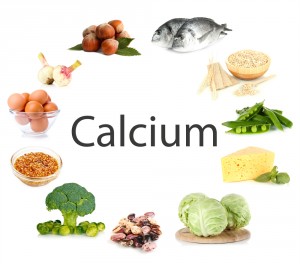 In a news release authored by James Meschino, DC, MS, Director of Nutritional Therapies at the Canadian Integrative Cancer Immunotherapies Clinicin Toronto, the benefits from calcium intake in the prevention of colorectal cancer (CRC) are discussed.
In a news release authored by James Meschino, DC, MS, Director of Nutritional Therapies at the Canadian Integrative Cancer Immunotherapies Clinicin Toronto, the benefits from calcium intake in the prevention of colorectal cancer (CRC) are discussed.
Several studies have been conducted over the past few decades with results strongly suggesting a positive correlation between calcium intake and lower incidence of CRC. Although this relationship has not been substantiated by short-duration randomized controlled trials (RCTs) of CRC, evidence does show a benefit on adenomas, a precursor to this type of malignancy.
The results from a recent meta-analysis published in the International Journal of Cancer, entitled “Calcium intake and colorectal cancer risk: dose-response meta-analysis of prospective observational studies”, by Keum and colleagues, have corroborate this preventive strategy.
In this meta-analysis, regarding total calcium intake the authors identified 15 studies with 12.305 cases, with an intake of 250-1,900 mg/day, and a follow-up of 3.3-16 years.
The results revealed that each 300 mg/day increase in calcium was associated with an approximately 8% reduced risk of CRC.
For supplementary calcium, results revealed that each 300 mg/day increase was associated with an approximately 9% reduced risk of CRC (6 studies with 8,839 cases, intake = 0-1,150 mg/day, follow-up = 5-10 years).
The authors concluded that both dietary and supplementary calcium intake might continue to decrease CRC risk beyond 1,000 mg/day. Calcium supplements and non-dairy products fortified with calcium may serve as additional targets in the prevention of CRC.
This study shows important results, with the team concluding that RCTs of calcium supplements with at least 10 years of follow-up are warranted to confirm a benefit of calcium supplements on CRC risk.
This has important implications for clinicians and as Meschino recommends, “In order to provide patients with personalised recommendations about calcium and vitamin D, I suggest you ask patients to complete a seven-day diet history to determine their present calcium intake, along with undergoing a simple blood test for 25-hydroxycholecalciferol (vitamin D). Once you have this data, you can advise them, if necessary, about how to increase their calcium intake and vitamin D blood levels into the optimal range”.

